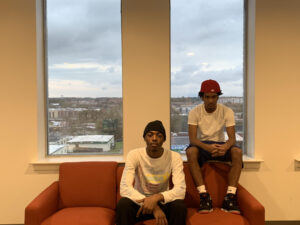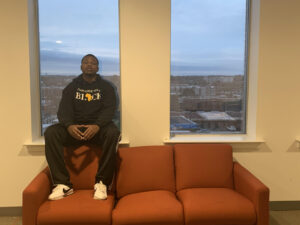
Research done by two social work PhD candidates at Washington university at St. Louis, points to some disturbing trends. Robert Motley and Andrae Banks examined barriers and facilitators to professional mental health service use for Black male trauma survivors ages 18 and older.
Their research involving trauma and mental health service use found that 56-74 percent of Black males are exposed to traumatic events and may have an unmet need for mental health services. Mental health conditions suffered by Black men due to trauma range from post-traumatic stress disorder (PTSD) and anxiety to schizophrenia, and substance abuse.
As reported by the 2019 U.S. census, there are roughly 43 million African Americans living in the U.S. Aside from the lack of mental health resources available in low-income Black communities, Black men are not accessing necessary mental health services simply because they have not been educated on the topic. But what happens when Black men and children aren’t taught how to identify their trauma? They become desensitized.
Atlanta native Mychael Taylor knows all too well about the permanent effects of desensitization following trauma induced by gun violence.
“It always makes you think twice about every situation you put yourself in,” Taylor said. “Like, parties and everything because it’s like, if you hang around or trust the wrong people you can be in the wrong situation at the wrong time.”
According to research completed by EveryTown and EveryStat, in Georgia, Black people are 6 times more likely than whites to die by gun homicide. Georgia is No. 11 for the highest rank of gun homicides in the country.
Most young Black men from Black communities have lost a close friend or relative to gun violence by the time they are 18. For Taylor, his first encounter with gun violence occurred at age 18.
“I was a senior in high school when one of my patnas got shot and killed,” Taylor said. “We were both 18.”
With firearms being the No. 2 cause of death for children and teens in Georgia, Taylor’s experience with gun violence and trauma opened his eyes. “I look at it as a lesson,” Taylor said. “I have a different outlook on death so it’s like, you learn when someone gets shot who you should and shouldn’t hang around.”
Archives of Pediatrics and Adolescent Medicine authors report from a study of 7 year olds in an urban neighborhood that 75 percent had heard gunshots, 18 percent had seen a dead body, and 61 percent worried some or a lot that they might get shot or killed.
At the young age of 7, Miami Gardens native Verdell Goins witnessed the murder of a middle aged man from his neighborhood.
From the neighborhood known as “Murder Gardens”, Goins is one of the many young Black men whose lives revolve around the heart wrenching reality of the loss of friends and family due to gun violence.
“Mentally I didn’t know how to feel because I was so young,” Goins said. “But it definitely still affected me because until this I day I can still remember that moment vividly.”
In Miami, young Black boys often can’t escape the reality of gun violence. As reported by the Miami Herald, between February 14 of 2018 and February 14 of 2019, 1,157 kids were killed by a firearm. The report includes the devastating massacre at the high school in Parkland where 17 students and staff at Marjory Stoneman Douglas High School were killed.
Fellow Atlanta native Alec Daley was also a victim of gun violence at a young age. When Daley was 10, his god brother was killed in a shooting.
“I had experienced a death in the family before, but this was different,” Daley said. “Knowing that his life was taken away at 19 still haunts me to this day.”

As reported by EveryTown and EveryStat, 175 kids and teens are killed by firearms each year in Florida. Between 2013-2017 EveryTown reported that 12,839 people had been killed by guns. This places Florida as the 19th highest rate of homicides in the country.
Among the victims was the best friend of Verdell Goins. On July 27, 2017 at around 10:30p.m, Goins said his best friend was killed.
“We were both outside at night, we were neighbors, and I went inside to get something. After a few minutes all I heard was gunshots. While I was inside I was holding my mom down because I didn’t know who or where they were shooting at. And while I was doing that I was praying that my best friend didn’t get hit,” explained Goins. “But unfortunately when I went outside I had seen that it was him that got killed.”
Goins’ was weighted with grief and the stress of reporting to Florida A&M that following month.
“It was tough for me because immediately after I had to see my best friend, who I met at five years old, laying there in a box, I had to leave to go miles away from home where I didn’t know anyone,” said Goins. “I never had time to process my feelings. It is definitely something that sits on the back of my mind everyday.”
If you or a loved one suffer from any type of mental distress or extreme grief following a traumatic event, or would like to talk to licensed psychologist & psychiatrists please call the NAMI HelpLine at 1-800-950-NAMI.